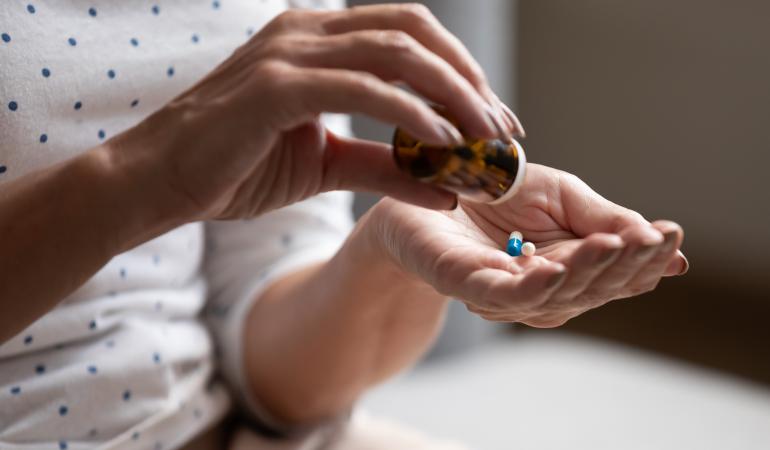
Antimicrobial resistance in the Netherlands remained stable in 2021 compared with the five previous years. This is evident from the 2022 annual NethMap/MARAN report. In this report, various organisations jointly present the data on antibiotic use and antimicrobial resistance in the Netherlands, for both humans and animals.
However, in recent years resistance has increased in certain bacteria that usually cause mild infections, e.g. on the skin.
It is becoming increasingly common worldwide for people to fall ill as a result of bacteria that are resistant to antibiotics. In this case, antibiotics will no longer work. This problem is less pronounced in the Netherlands than in many other countries. However, it remains important for the Netherlands to stay alert. In order to prevent resistance, it is important to use antibiotics correctly and only if necessary. All hospitals in the Netherlands and an increasing number of general practitioners are now paying attention to measuring and improving their antibiotic use.
Use of antibiotics
During the coronavirus pandemic in 2020 and 2021, fewer people went to their GP. General practitioners prescribed 10% fewer antibiotics.
The total use of antibiotics in hospitals decreased in 2020. On average, however, more were given per patient, as many patients had to be treated for longer and more intensively during the coronavirus pandemic.
Fewer outbreaks due to resistant bacteria
Since the beginning of the coronavirus pandemic in 2020, fewer outbreaks of resistant bacteria in hospitals and nursing homes have been reported.
It is not clear whether the impact of the coronavirus pandemic and associated changes in care will last in the long term.
Antibiotic use and antimicrobial resistance in farm animals
In 2021, fewer antibiotics were sold and used for pigs, cows and chickens kept for food production (farm animals) than in 2020. Compared with 2009, the reference year, sales fell by more than 70%. With some infections, people are dependent on certain types of antibiotics. Since 2015, these specific antibiotics have only been used for farm animals in exceptional cases.
Over the past ten years, intestinal bacteria in farm animals have become less and less resistant.
The measures that have already been taken in the Netherlands to combat antimicrobial resistance go beyond healthcare alone. Resistant bacteria are also found in animals, in food and in the environment. Medical and veterinary experts are working together on this in a One Health approach.
Research report
The results come from the 2022 NethMap/MARAN report. NethMap was created through a collaboration between the Dutch Working Party on Antibiotic Policy (Stichting Werkgroep Antibioticabeleid, SWAB) and the RIVM's Centre for Infectious Disease Control. MARAN is a collaboration between Wageningen Bioveterinary Research, Wageningen Food Safety Research, the Netherlands Food and Consumer Product Safety Authority, RIVM, Utrecht University and the Netherlands Veterinary Medicines Institute.